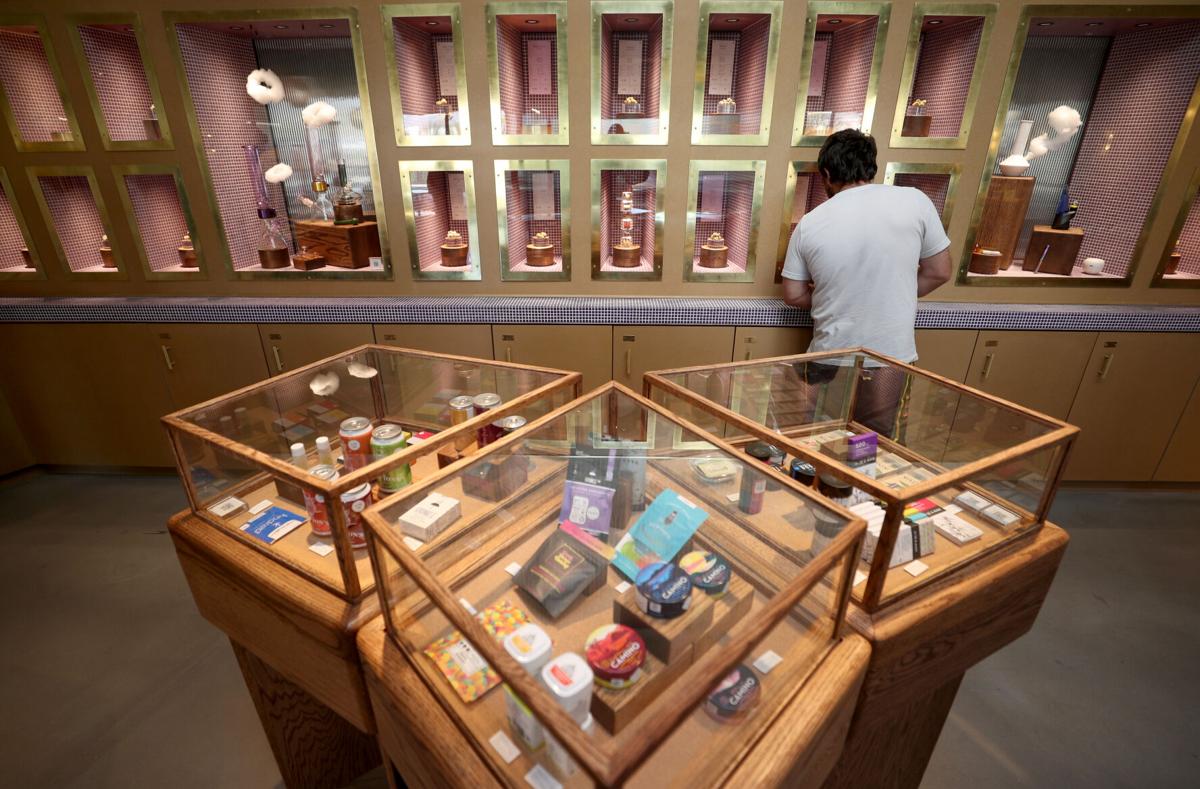Unknown Facts About Dispensary Denver
Wiki Article
4 Simple Techniques For Dispensary Denver
Table of ContentsThe Basic Principles Of Dispensary Denver Some Known Facts About Dispensary Denver.Some Ideas on Dispensary Denver You Need To KnowThe Single Strategy To Use For Dispensary DenverTop Guidelines Of Dispensary DenverNot known Details About Dispensary Denver
Local marijuana tax obligations are generally covered by the state and set in between 2 percent and also 5 percent. The percentage-of-price tax is the most prominent tax obligation on marijuana.Alaska, Colorado, Maine, Nevada, and New Jersey make use of a weight-based marijuana tax obligation. Tax obligation calculations vary across these states, but in every state the farmer (i. e., cannabis cultivator) is accountable for paying the tax obligation to the federal government, and also in every state but New Jersey different parts of the plant are tired at different rates (e.
Potency-based. dispensary denver. A potency-based tax obligation is computed based upon the cannabis product's level of tetrahydrocannabinol (THC), the main psychedelic substance in marijuana. This sort of tax obligation roughly mirrors state alcohol taxes where higher tax rates are related to products consisting of a greater focus of alcohol (i. e., a state's per gallon alcohol tax obligation price is greater on alcohol than white wine and also greater on a glass of wine than beer).
City governments can also impose an excise tax on cannabissome levy a percentage-of-price tax and also others levy a weight-based tax obligation. Legal sales started in October 2016.: The state imposes a 16 percent excise tax on marijuana sales that is paid by consumers and also remitted by stores. There are no regional cannabis tax obligations in Arizona.
: The state levies a 15 percent excise tax obligation on cannabis sales that is paid by customers and paid by retailers. The golden state' state government formerly also imposed a weight-based tax, however that tax obligation was reversed in 2022. City governments in California can additionally impose an excise tax on cannabis services.
Fascination About Dispensary Denver
The last tax can be applied on the farmer, distributor, and the store, which means the tax problem on the consumer is perhaps well over the listed tax rate. Legal sales started in January 2018.: The state levies both a 15 percent excise tax obligation on marijuana sales (paid by customers and also remitted by stores) and a weight-based tax (paid as well as remitted by growers).

Lawful sales started in October 2018 however the state did not begin gathering cannabis tax earnings till November 2020.: Maryland citizens authorized leisure cannabis in November 2022. The ballot action did not have a marijuana tax obligation, however instead advised the legislature to produce one. As of April 2023, legal marijuana sales had actually not yet begun in Maryland.
Dispensary Denver Things To Know Before You Buy
75 percent excise tax on marijuana sales that is paid by consumers and also remitted by retailers. City governments are additionally allowed to impose as much as a 3 percent tax obligation on the list price. Lawful sales began in November 2018.: The state imposes a 10 percent excise tax on marijuana sales that is paid by consumers as well as paid by sellers.: The state levies a 20 percent excise tax on cannabis sales that is paid by customers and also remitted by merchants. Neighborhood governments are likewise permitted to levy this hyperlink up to a 3 percent tax on the market price. Lawful sales began in January 2022.: The state levies both a 10 percent excise tax on cannabis sales (paid by consumers as well as paid by merchants) as well as a weight-based tax obligation (paid and also remitted by growers).
Since this tax obligation is imposed on numerous companies in the supply chain (grower, representative, and also retailer), the tax burden can great site "pyramid" to ensure that the actual tax paid by the consumer is greater than the provided 2 percent price. Lawful sales started in April 2022.: The state imposes a 12 percent excise tax obligation on cannabis sales that is paid by consumers as well as paid by merchants (dispensary denver).
The Facts About Dispensary Denver Uncovered
Legal sales began in April 2022.: There is both a 13 percent excise tax obligation (9 percent state as well as 4 percent regional) on cannabis sales (paid by customers as well as remitted by retailer) and also a potency-based tax obligation (remitted by representatives) in New york city. The potency-based tax obligation is a per unit tax obligation: 0.: The state imposes a 10 percent excise tax on marijuana sales that is paid by customers and paid by merchants. City governments are additionally enabled to levy approximately a 3 percent tax on the market price. Lawful sales began in November 2022.: The state levies a click for more info 14 percent excise tax obligation on cannabis sales that is paid by customers as well as paid by merchants.
Legal sales started in October 2022.: The state enacted a 21 percent excise tax obligation on cannabis sales that is paid by customers as well as paid by sellers. City governments will additionally be allowed to impose up to a 3 percent tax obligation on the market price. Since April 2023, legal marijuana sales had not yet started in Virginia.
5 Simple Techniques For Dispensary Denver
Some states commit cannabis tax profits to traditional government programs. Arizona spends one-third of its income on neighborhood universities, Colorado invests all of its earnings on public college construction, Michigan uses a majority of its revenue for K-12 public schools and road repair and maintenance, and Washington spends half of its revenue on health care programs.Report this wiki page